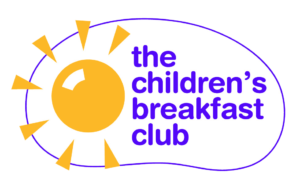Introduction
Breakfast is often referred to as the most important meal of the day, and for a good reason. It provides the necessary fuel for our bodies and brains to function optimally, especially during the early morning hours when energy levels are low. At the Children’s Breakfast Club, we understand that every child deserves a healthy start to their day. We believe that a nutritious breakfast is not just a meal but a fundamental building block for success – particularly when it comes to academic achievement. Research suggests a strong correlation exists between breakfast consumption and academic success in children, highlighting the importance of a nutritious morning meal in supporting cognitive development and learning. In this article, we will look into the various aspects of this correlation, exploring why every child deserves a healthy start to the day by consuming a nutritious breakfast.
The Importance of Breakfast for Children
Breakfast is essential for children as it replenishes their energy levels after a long overnight fast, providing vital nutrients to kickstart their day. A balanced breakfast consists of carbohydrates, proteins, healthy fats, vitamins, and minerals, all of which are essential for supporting growth and development of children, both physically and mentally. Nutrient-rich foods such as whole grains, fruits, dairy products, and proteins supply the necessary nutrients needed for cognitive function, concentration, and memory retention.

Numerous studies have highlighted the positive impact of breakfast on children’s academic performance. A study published in the “National Library of Medicine” found that children who regularly ate breakfast had higher standardized test scores, better attendance rates, and fewer behavioral issues compared to those who skipped breakfast. Similarly, research conducted by the University of Pennsylvania demonstrated that students who ate breakfast regularly had better grades and higher academic achievement levels than breakfast skippers.
The Role of Nutrition in Cognitive Function

Various studies have demonstrated the positive impact of breakfast on children’s cognitive function, memory, and attention span, all of which are essential for academic success. A well-balanced breakfast provides the necessary nutrients and energy to fuel both the body and the brain, setting the stage for optimal learning throughout the day.
One of the key ways in which breakfast influences academic performance is through its effects on cognitive function. The brain relies on glucose as its primary source of energy, and after an overnight fast, breakfast refills glucose levels, enhancing cognitive function and mental alertness. Studies have shown that children who eat breakfast regularly perform better on standardized tests, have higher attendance rates, and demonstrate improved concentration compared to those who skip breakfast.
Furthermore, breakfast consumption has been linked to better memory retention and academic achievement. Nutrient-rich foods such as whole grains and proteins provide essential vitamins and minerals that support brain health and function. Omega-3 fatty acids, found in certain foods like fish and nuts, are particularly beneficial for cognitive development and may contribute to improved academic performance. Additionally, foods rich in antioxidants, such as fruits and vegetables, protect brain cells from oxidative stress and inflammation, promoting healthy brain function.
The Impact of Breakfast on Concentration and Attention
A nutritious breakfast can significantly enhance children’s concentration and attention span, enabling them to stay focused and engaged during classroom activities. Research indicates that skipping breakfast or consuming a breakfast low in nutrients can lead to cognitive impairments, including decreased attention span, memory deficits, and slower processing speed.
The glycemic index (GI) of breakfast foods also plays a role in it. High-GI foods, such as sugary cereals and pastries, cause rapid spikes and subsequent lows in blood sugar levels, leading to fluctuations in energy and attention. In contrast, low-GI foods, such as oatmeal and whole-grain bread, provide sustained energy levels, promoting stable blood sugar and improved cognitive performance.

Relationship between Breakfast and Children’s Behavior
Furthermore, breakfast consumption has been linked to better behavior, emotional stability and mood regulation in children throughout the day. This is because breakfast helps stabilize blood sugar levels after a night of fasting, providing a steady source of energy for the brain and body. When blood sugar levels are stable, children are less likely to experience mood swings, irritability, anxiety and aggression commonly associated with low blood sugar levels. By providing a solid foundation of nutrition and support, breakfast empowers children to navigate challenges, regulate their emotions, and cultivate better relationships with peers and teachers.
Overcoming Barriers to Breakfast Consumption
Despite the clear benefits of breakfast, many children still miss out on this important meal due to various barriers. Financial constraints, time limitations, and lack of access to nutritious foods are just some of the challenges that families face in providing breakfast for their children.
At the Children’s Breakfast Club, we recognize these barriers and strive to address them through our breakfast programs. By offering nutritious meals in a welcoming and supportive environment, we ensure that every child has access to a healthy start to their day – regardless of their socioeconomic background.
Moreover, we believe in the power of education and advocacy to break down barriers to breakfast consumption. Many parents may not fully understand the impact of breakfast on their child’s academic performance and overall well-being. Providing information on nutritious breakfast options, meal planning strategies, and the benefits of regular breakfast consumption can empower parents to prioritize breakfast in their family’s daily routine.
Simple steps such as preparing breakfast ahead of time, incorporating a variety of foods into meals, and involving children in meal preparation can make breakfast more accessible and enjoyable for the whole family. By emphasizing the link between breakfast and academic success, parents can instill lifelong healthy eating habits in their children and set them up for academic achievement.
Looking Ahead: A Vision for a Brighter Future
As we look into the future, our commitment to providing breakfast for children remains unwavering. We believe that every child deserves the opportunity to reach their full potential, and a healthy breakfast is an essential step on that journey. Through our programs and partnerships, we will continue to foster the importance of breakfast in supporting children’s academic success and overall well-being.

In closing, we invite you to join us in our mission to ensure that every child has a healthy start to their day. Together, we can fuel success and empower children to thrive in school and in life. After all, a nutritious breakfast today lays the foundation for a brighter tomorrow.
Please connect with us on our social media platforms: Facebook, Instagram, X, and YouTube.



Rajiv Thapa